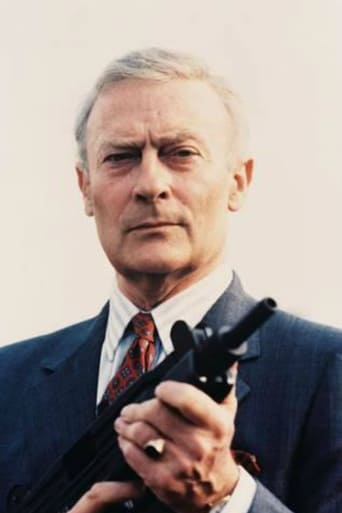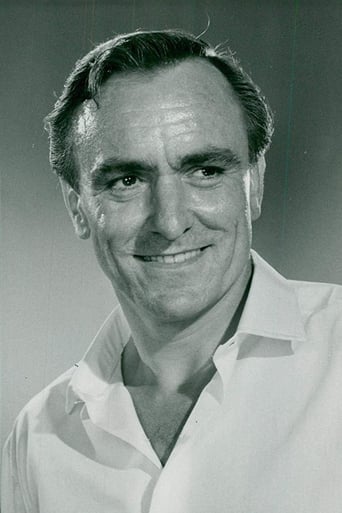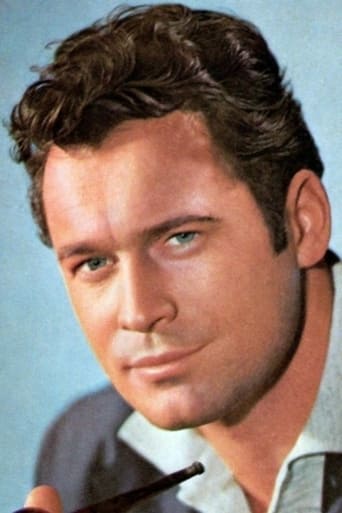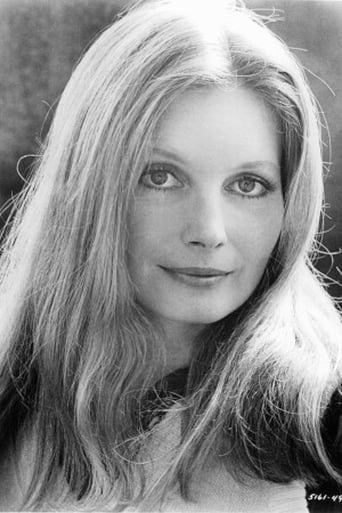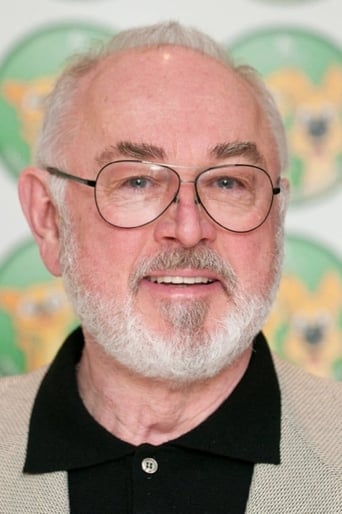AniInterview
Sorry, this movie sucks
Dynamixor
The performances transcend the film's tropes, grounding it in characters that feel more complete than this subgenre often produces.
Calum Hutton
It's a good bad... and worth a popcorn matinée. While it's easy to lament what could have been...
Leofwine_draca
It seems to me that half of the British films made during the 1970s seemed to be big-screen outings for popular television series, and while most were comedies, CALLAN is a thriller spin-off of the late '60s TV show. Edward Woodward is the renegade secret agent tasked with assassinating a rival German agent, but first he wants to find out why. This film has a cheap, working class feel to it which is somehow quite different to the rest of the thriller genre from the era. Woodward is solid and the likes of Russell Hunter help to propel the story along in an entertaining fashion, although Carl Mohner bags the most sympathetic role as the war gaming enthusiast. There's also a very well-filmed car chase through the English countryside in which bus shelters are demolished and the like.
A_Different_Drummer
While the notion of "franchising" a successful creative work is nothing new today, it was quite novel (sorry for the pun) for author James Mitchell.His spy novel A Magnum for Schneider was published in 1969. It begat a successful book series; a top-rated British TV drama which ran for years, which Mitchell also wrote for; a bona fide international star (Woodward) who was so successfully identified with the role of Callan that he actually crossed the pond and starred in a TV show there called The Equalizer; and, of all things, this bizarre almost reverent attempt to milk the original cow (the first novel) one more time, in 1974, using most of the original cast, in a feature length film, and shot in colour.This should be point in the review where I tell you that this whole exercise was of such high quality that Callan is as watchable today (whenever you are reading this) as it was then. If I said that, I would be lying.While Mitchell had his finger on the pulse of the 60s -- a gradual turning away from traditional and respectable spy stories to something a little more violent and gritty -- it was only a taste of what was to come.Which means that this film, as competent as it is, will always remain merely a curiosity for fans who remember the original. (And also remember, for example, that in the series, Callan not only returned to his "job" but for a while actually ran the entire Section!) Fond memories. But only memories.
BJJManchester
An acceptable expansion of the pilot episode of the celebrated TV spy series,CALLAN benefits from Edward Woodward's memorable characterisation of an unglamourous,seedy and brutish secret agent David Callan,helped and hindered by his even seedier sidekick,smelly petty crook Lonely,superbly played by Russell Hunter.Although not quite as good as the TV series,this film version is still very watchable and efficiently directed by Don Sharp,with a few interesting frisson's added,most notably Callan's ferocious disposal of a gangster's hit-man(played by Dave Prowse,later to become Darth Vader's physical form.As with Star Wars,Prowse's Bristol accent is dubbed over here as well)and the gangster's subsequent use for virtual human experimentation,which Callan observes to his disgust and horror.The series was always interesting for Callan's frequent clashes with his superiors,made more strident because of his working-class background;his colleagues were invariably upper middle-class,public schoolboys,as typified by the vindictive bully Toby Meres,played here by Peter Egan.Egan is adequate in the role but lacks the extra toughness,wit and humour provided by Anthony Valentine in the TV series(Peter Bowles played Meres in the pilot),and his boss 'Hunter',played in this film version by Eric Porter; the best 'Hunter' of all in the TV series was probably William Squire.Many UK TV shows had film versions produced in the 1970's,mostly sitcoms like ON THE BUSES,LOVE THY NEIGHBOUR,MAN ABOUT THE HOUSE,etc. These and others were mostly dismal but CALLAN works far better despite having to add more footage from the original TV pilot,and works as a taut,terse and respectable film version of an excellent TV original.RATING:6 and a half out of 10.
johngammon56
This is a tight, intelligent thriller closely based on the fine novel Red File For Callan, from which the great 1960s-1970s Thames TV series developed. David Callan is a solitary, mentally unstable killer, who is given one last chance to return to "The Section", a shadowy British government security department. Callan hates to kill, but is qualified for little else, and has been forced by his old masters into a dull, mundane office job with a harassing boss. His test is to murder someone - a man whom it turns out he knows, an apparently harmless businessman with whom he shares an interest in military history and battle games. The film boasts a first-class performance from Edward Woodward as Callan, reprising his TV role with confidence. Russell Hunter is also extremely good as Lonely, a smelly petty crook who Callan employs to get him a gun. Sadly the film was made with little style, and the military band score is disappointingly out of kilter with Jack Trombey's fine, moody Callan TV theme.The Callan character was an icon in British television history, and was extremely popular with viewers. This story got its first outing as A Magnum for Schneider (the book's original title) in a 50 minute slot on Armchair Theatre, a famous British TV drama anthology. (This unofficial pilot can now be seen on a very good DVD compilation of what early episodes are still unwiped, called "Callan: The Monochrome Years" (Network DVD, 2010).) Callan was seen, like The Ipcress File, as an antidote to the invulnerable 007. Why there were no other Callan films made, since the creator James Mitchell wrote several filmable novels about the character, is a mystery.Callan boasts one technical distinction: according to the Guinness Book of Movie Facts and Feats, this was the first film to be released with a Dolby encoded mono soundtrack. (A Clockwork Orange used Dolby noise reduction in its making some years before but used a conventional soundtrack on its release prints.) When I saw Callan on its release at a local cinema, I remember thinking the sound was uncommonly clear and the dialogue for once actually audible.
